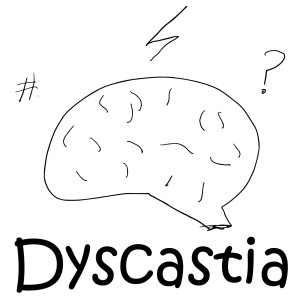
- Podcast Features
-
Monetization
-
Ads Marketplace
Join Ads Marketplace to earn through podcast sponsorships.
-
PodAds
Manage your ads with dynamic ad insertion capability.
-
Apple Podcasts Subscriptions Integration
Monetize with Apple Podcasts Subscriptions via Podbean.
-
Live Streaming
Earn rewards and recurring income from Fan Club membership.
-
Ads Marketplace
- Podbean App
-
Help and Support
-
Help Center
Get the answers and support you need.
-
Podbean Academy
Resources and guides to launch, grow, and monetize podcast.
-
Podbean Blog
Stay updated with the latest podcasting tips and trends.
-
What’s New
Check out our newest and recently released features!
-
Podcasting Smarter
Podcast interviews, best practices, and helpful tips.
-
Help Center
-
Popular Topics
-
How to Start a Podcast
The step-by-step guide to start your own podcast.
-
How to Start a Live Podcast
Create the best live podcast and engage your audience.
-
How to Monetize a Podcast
Tips on making the decision to monetize your podcast.
-
How to Promote Your Podcast
The best ways to get more eyes and ears on your podcast.
-
Podcast Advertising 101
Everything you need to know about podcast advertising.
-
Mobile Podcast Recording Guide
The ultimate guide to recording a podcast on your phone.
-
How to Use Group Recording
Steps to set up and use group recording in the Podbean app.
-
How to Start a Podcast
-
Podcasting
- Podcast Features
-
Monetization
-
Ads Marketplace
Join Ads Marketplace to earn through podcast sponsorships.
-
PodAds
Manage your ads with dynamic ad insertion capability.
-
Apple Podcasts Subscriptions Integration
Monetize with Apple Podcasts Subscriptions via Podbean.
-
Live Streaming
Earn rewards and recurring income from Fan Club membership.
-
Ads Marketplace
- Podbean App
- Advertisers
- Enterprise
- Pricing
-
Resources
-
Help and Support
-
Help Center
Get the answers and support you need.
-
Podbean Academy
Resources and guides to launch, grow, and monetize podcast.
-
Podbean Blog
Stay updated with the latest podcasting tips and trends.
-
What’s New
Check out our newest and recently released features!
-
Podcasting Smarter
Podcast interviews, best practices, and helpful tips.
-
Help Center
-
Popular Topics
-
How to Start a Podcast
The step-by-step guide to start your own podcast.
-
How to Start a Live Podcast
Create the best live podcast and engage your audience.
-
How to Monetize a Podcast
Tips on making the decision to monetize your podcast.
-
How to Promote Your Podcast
The best ways to get more eyes and ears on your podcast.
-
Podcast Advertising 101
Everything you need to know about podcast advertising.
-
Mobile Podcast Recording Guide
The ultimate guide to recording a podcast on your phone.
-
How to Use Group Recording
Steps to set up and use group recording in the Podbean app.
-
How to Start a Podcast
-
Help and Support
- Discover

In this episode, Michael and Bill delve into what Specific Learning Difficulties are and the advantages vs the disadvantages of using terms like learning difference, disability or disorder to describe them.
So what do we call it when a person can’t learn to do something like reading, writing or maths as easily as what is considered normal?
It’s a touchy subject and to be honest, it probably depends on the context you’re in when talking about it and whom you're talking to. Sometimes our context is trying to get funding schools to better support kids at school, sometimes it’s raising awareness in the community about learning problems and the long term impact they have on students. In these contexts, we want to talk in a way that underlines the functional severity of these difficulties and the lasting impact they have on young people (especially if not dealt with and properly resourced). So, in those contexts, we might use terms like disability or disorder. Then there’s the toughest context – a child who needs their difficulty explained to them, carefully, in a way that doesn’t talk down to them or minimise the problems they experience, but at the same time doesn’t crush their soul. In this context, we may tread too lightly and talk about brains working differently and put too little attention on the very real hardships the child experiences every day at school.
It’s tough and it deserves exploring because regardless of the context there’s just so much at stake. So let’s go there!
More Episodes
 2025-11-14
2025-11-14
 1.3k
1.3k
 2025-09-01
2025-09-01
 1.7k
1.7k
 2025-08-08
2025-08-08
 1.5k
1.5k
 2025-02-10
2025-02-10
 2.5k
2.5k
 2024-01-18
2024-01-18
 3.7k
3.7k
 2023-11-15
2023-11-15
 3.5k
3.5k
 2023-07-21
2023-07-21
 4.4k
4.4k
 2023-05-21
2023-05-21
 10.7k
10.7k
 2023-02-13
2023-02-13
 3.5k
3.5k
 2022-12-27
2022-12-27
 3.3k
3.3k
 2022-09-20
2022-09-20
 3.0k
3.0k
 2022-07-15
2022-07-15
 3.1k
3.1k
 2022-02-07
2022-02-07
 2.9k
2.9k
 2021-12-31
2021-12-31
 3.5k
3.5k
Create your
podcast in
minutes
- Full-featured podcast site
- Unlimited storage and bandwidth
- Comprehensive podcast stats
- Distribute to Apple Podcasts, Spotify, and more
- Make money with your podcast
It is Free
- Privacy Policy
- Cookie Policy
- Terms of Use
- Consent Preferences
- Copyright © 2015-2026 Podbean.com



